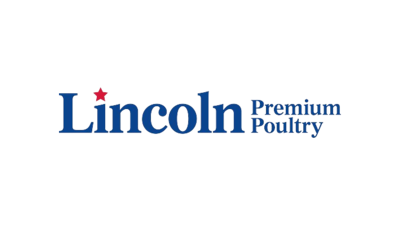There is no “off-the-shelf” approach to implementing a strong FSQA strategy. Food safety culture differs by plant, but the desired outcomes are the same: achieving zero recalls, and demonstrating that you’re a quality and food safety-driven organization in an audit.
The FSQA team at Nichols Farms hasn’t added any headcount to their team of four despite product volume doubling over the last 3 years. Managing over 80 million pounds a year, 12,000 pounds an hour means “all things must be in balance,” says Food Safety and Sanitation Director, Jennifer Dunlap.
“You can make a lot of good product fast, or a lot of bad product fast,” and for Jennifer, the former has been possible without expanding workforce.
Enabling safe and consistent quality operations meant starting with the low-hanging fruit, digitized critical control points (CCPs). However, what began as a CCP initiative quickly gained momentum once Operations and Maintenance teams saw the impact SafetyChain’s digital forms had on efficiency. Now, over 20,000 records are recorded in SafetyChain a month.
The FSQA team’s digitization efforts acted as internal social proof, facilitating the plant-wide adoption of digital forms and a strong food safety culture. What began as a data-driven solution for one department has evolved into a process-driven system for the plant floor.
We are no longer just checking boxes, we are using the info to make smarter decisions and produce the highest quality product we possibly can.
In the coming segments, see why manufacturers don’t need to go out of their way to build a strong and well-adopted FSQA strategy.
- HACCP: Controlling hazards the easy way
- Audits: Moving from hours to minutes, even with four in one month
- End-to-End Processes: Managing product moving in, through, and out
HACCP: Controlling Hazards The Easy Way
Manual HACCP management is difficult. Missing data, human error, and reactive control limit analysis are issues that come with the territory. Not to mention the physical toll on operators. “Their hands would cramp up with all the writing they had to do before with handwritten logs.”
In 2021, Nichols Farms implemented SafetyChain to replace their existing QMS system. They began with capturing data from critical control points (CCPs) to eliminate the need for paper-based documentation, and to enable real-time data collection and process monitoring.
Metal Detection and X-Ray Machines
Recognizing the need to be audit-ready at all times, their topmost priority was digitizing data from metal detection and X-ray machines. SafetyChain simplified the review process for CCPs, ensuring all are signed off within seven days as required by the FDA. Digital forms have also eliminated the search for missing paperwork or initials, so no one has to track down individuals for errors or corrections.
There are a lot of things that are just automatically fixed by having this in SafetyChain.
Pasteurization
With hourly CCPs being generated, the pasteurization department was especially eager to embrace data automation. Now, details such as times and initials are captured upon login. The team found this particularly efficient, as it alleviated the physical strain of writing blogs by hand.
"They can submit and repeat if they’re running the same lot, so they don’t have to keep typing in all the info. Plus, employees no longer have to remember to fill out boxes — SafetyChain won’t allow form submission until everything is complete.”
Roasting
Digital records make it easier to review and adjust processes as needed. Supply chain and weather dynamics easily affect recipes, and SafetyChain simplifies the recall of previous processes with different ingredients. Instead of looking through binders to find a recipe that isn’t used frequently, employees can easily reference digital records.
“We can quickly look and see ‘how did we run the roaster this day?’” says Jennifer. “[Operators] can quickly pull the records without having to look through binders.”
The ability to capture pictures of the internal roast also enhances quality control, allowing for detailed monitoring and adjustments based on real-time data.
Moisture and Salt
Two of the most important factors in the roasting process are moisture and salt. Too little moisture can result in pistachios that are over-roasted and burnt, leading to an off flavor. Too much moisture or salt can alter the taste, making the product more akin to peanuts than pistachios.
Incoming raw product is also variable, with some shells a little more open than others, resulting in different roasts.
“We really wanna make sure that we're in that sweet spot for moisture… [SafetyChain] really helps us make sure that we're making decisions and making adjustments on the fly.”
Pack Weights
Giving a customer exactly what they paid for is easier said than done. Underfilling product might sever a relationship, and overfilling can add up to millions in waste.
The specification ranges on digital forms help operators know exactly how bagging machines are performing during a quality check. There are also SPC charts to illustrate real-time trends.
“SafetyChain helps us maintain that balance by providing real-time data on machine performance and packaging line operations.”
Bag Seals and Oxygen Checks
Unfortunately, sealing machines aren’t always capable of achieving a perfect seal on every bag. With the ability to view and filter by nonconformance, users can drill down into specific records to see where issues arise. When Nichols Farms encountered an unusual problem with pinholes after transitioning to new equipment, SafetyChain allowed them to quickly diagnose the issue. By comparing data from before and after the equipment change, they could clearly demonstrate the problem to the equipment manufacturer, who then performed the necessary fine-tuning to fix the issue.
"It's nice to be able to have that data and present your case quickly, seeing what's going on in real-time," says Jennifer Dunlap. "This capability also helps reduce the amount of product that goes on hold because you can identify and address issues immediately."
The ability to view and filter by nonconformance enables Nichols Farms to drill down into specific records, pinpointing and resolving issues quickly.
Finished Goods At The Finish Line
Digitizing CCPs has ensured that Nichols Farms maintains high-quality and safe standards from start to finish. Every HACCP step, from raw material to bag checks, is accurately documented and easily accessible. Photos provide undeniable evidence, and quality data contextualized in digital forms guide the right next steps.
Improving one CCP after the next has strategically involved more and more people, encouraging plant floor buy-in and higher throughput. With digital CCP data across production, Nichols Farms has the digital breadcrumb trail to investigate any customer complaint and pass any unannounced audit.
Audits: Moving From Hours To Minutes
Nichols Farms has a number of complex regulatory and customer requirements. Their Audit Food Safety team of four must consistently satisfy:
- SQF (certified since 2011)
- Private label
- Underwriters Laboratories (UL) for CVS
- Organic CCOF
- EU
Jennifer, Director of Food Safety and Sanitation, brought on SafetyChain to “go from a hair-raising event to a very easy process.”
Putting an End to the “Audit Nightmare”
Before digitizing their records with SafetyChain, audit prep was a major hassle for Nichols Farms.
Enabling easier audit prep meant Jennifer’s initial priority was getting CCP documentation digitized and organized. As digital forms became more widely adopted, the ability to create dynamic forms and capture photo evidence meant that HACCP to pre-op checks were easily accessible.
“During an audit, it shows that it’s all connected. It shows that you are a quality-driven organization and a food safety-driven organization [with] that kind of evidence present during an audit.”
One audit requested all records for a specific lot code to be given in four hours. It took 30 minutes with a quick search in SafetyChain. Now that all of their data is centralized in SafetyChain, audit prep is hassle-free; no forklifts needed.
Even with their food safety manager out on maternity leave for several months, Nichols Farms was able to pass four audits in one month. They received an excellent rating on their SQF audit and passed all customer audits without having to work weekends, perform frantic audit prep, or hire any temps. Not to mention they saved roughly $16,000 on labor costs as well.
Customer Complaint Resolution
Similar to audit prep, customer complaint resolution was also once cumbersome for Nichols Farms. Previously, they’d flip a coin to see who’d have to dig through records in a hot shed to start an investigation. Their products have an eighteen-month shelf life, so any records related to a complaint that comes in during the end of a batch’s life might take hours to pinpoint.
“Now, the amount of time we're spending on investigations is very minimal. A quick search of the lot, and we can pull everything in quickly, have all that information ready to present if needed.”
What started as an initiative to digitize one HACCP check after the next has transformed audit prep and customer complaint investigation for Nichols Farms, turning hours into minutes.
End-To-End Processes
Nichols Farms set out to digitize, consume, and make use of information from lost areas in their plant. The data needed to reduce human error, support operators, ace audits, and encourage a food safety culture was stuck in a shed, a binder, another department, or was incomplete.
Jennifer’s methodical approach to an FSQA strategy allowed digitization and smart behavior to snowball across the plant floor.
From A Solution To A System
Her strategy began with digitizing metal detection and x-ray machine CCPs for one quality team, and moved to digital roasting and pasteurization checks that involved another operations team.
“Once you start getting more departments involved, they’re like ‘Oh wow, this is really cool.’ Then they start showing it to adjacent departments.”
Transitioning from paper forms to mobile digital forms isn’t hard when you see how efficient it’s made your counterparts.
Better Forms
SafetyChain’s forms are intuitive and dynamic. Each step aligns with SOPs, and specific instruction can appear based on operator inputs, informing action when non-conformances and issues arise, such as taking photo evidence.
Forms also allow management to become interconnected, involving people across various teams to collaborate on processes. Nichols Farms uses a dynamic form in their flavor line, where they set up the batch of product, complete roasting, and then add salt and moisture. Supervisors can track and verify each step for a batch in real-time.
“One of the great things about SafetyChain is that you’re really just limited by your imagination to be able to create a form.”
Better Processes
20,000 forms are processed in SafetyChain each month, and the plant floor is quickly moving from a reactive system to a proactive system.
Production: Take a look at some of the in-process checks and analysis that occurs during a Nichols Farms production run:
Training: Complicated changes to quality checks or SOPs are made a lot easier with digital forms. Dynamic form fields, clear steps, and bilingual instruction can ensure accurate data collection despite seemingly tricky steps, and updates can be pushed out immediately.
"If you have to make a change to the form, it immediately goes out to the team. You're not chasing down all of the random copies someone has squirreled away somewhere."
Better Decisions:
With quality and production data at their fingertips, Nichols Farms is working smarter, not harder.
Supply Chain: Nichols Farms was able to double product volume over the last three years by adapting to variable conditions. Leveraging historical data to inform processes is how they maintain proactive quality operations. For example, when weather affects incoming raw materials, the roasting team can quickly access historical quality data from similar conditions and adjust the roaster accordingly.
Exception Reporting: Customized views in SafetyChain help to quickly pinpoint issues and prioritize what should be addressed next. Identifying problems by form, product, machine, or resource helps address low-hanging fruit and allocate resources efficiently.
“You can really dial in and see where we can use our time or resources to really help any problem we're seeing out there on the floor.”
Moving Product In, Through, And Out
SafetyChain’s Digital Plant Management provides control and deep insight into the product moving in, through, and out of your facility. However, not all FSQA leaders feel confident in their ability to successfully promote a digital, data-centric, and visibility-driven state. Jennifer Dunlap and her FSQA team met this challenge with a methodical approach, prioritizing low-hanging fruit and strategically involving other stakeholders. As a result, Nichols Farms now has a unified and quality-led environment, where FSQA strategy is proliferating organically across the organization.


